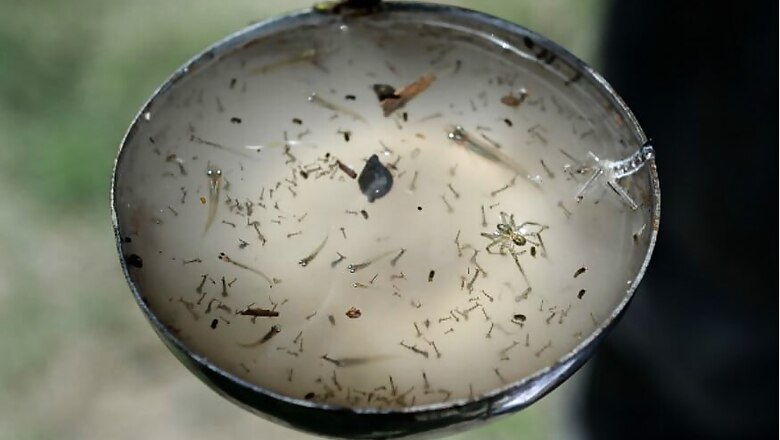
views
Every year, during the monsoon, mosquito-borne diseases like dengue, chikungunya, zika and dengue become a threat to the health of many people. With an increase in the number of health cases affected by these diseases and Japanese encephalitis, the need to eradicate the parasites spreading the monsoon diseases has become a necessity. Many universities and researches have been working intensively in the direction to find a cure for these monsoon diseases.
Malaria, being a common vector-borne disease, has been a major concern for many researchers and in a recent development, research by the University of Glasgow has developed a new drug that could prevent the spread of malaria. The medicine, which is delivered by an international team led by the University of Glasgow, could also be useful in the treatment of people suffering from the deadly parasitic disease, malaria.
According to the study, more than 200 million people are affected by malaria every year, which ends up killing nearly 500,000, most of whom are children. Malaria is caused by the bite of the female anopheles mosquito. The parasite usually grows in the liver and red blood cells.
The research team claimed that the new drug, developed by them, stops the activity of a protein involved in keeping the parasite alive, thus killing the parasite. Through the new drug, the parasite can be killed at all the stages of its life cycle – when it is in the liver and red blood cells, as well as preventing sexual development of the parasite.
In addition, this medicine has the potential to effectively kill off the malaria organism, which prevents it spreading, and also holds the possibility of treating the disease.
Lead author Andrew Tobin, professor of molecular pharmacology at the University of Glasgow, said, “We are tremendously excited about these new findings and hope they pave the way for the first step in the eradication of malaria. Our work has shown that by killing the parasites at the various stages of parasite development, we have not only discovered a potential cure for malaria but also a way of stopping the spread of malaria from person to mosquito, which can then infect other people.”
The research, conducted by the researchers at the team of researchers from the University of Glasgow was published in the journal Science. The study was titled, ‘Validation of the protein kinase PfCLK3 as a multistage cross-species malarial drug target.’
Jake Baum, professor of cell biology and infectious diseases at Imperial College London, said, “This is where the current study fits in, looking at an exciting class of drugs that indeed works in a new way. So far, in this discovery paper, the authors show the drug has robust activity, targeting the malaria parasite at several stages in its lifecycle. It is still very early in development and there’s a long way to go before these drugs would even be put into testing in humans, but we need a full pipeline for the long road if we are to achieve global eradication.”




















Comments
0 comment